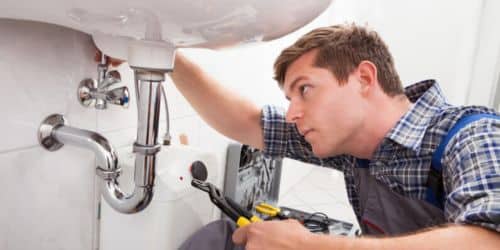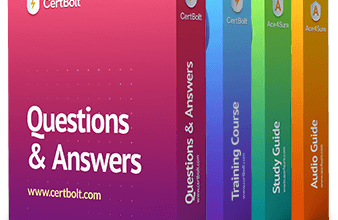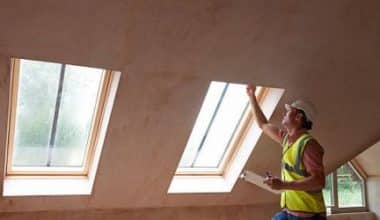In the competitive employment market for plumbers, having relevant certifications might help you stand out from the competition. A plumber’s ability to do a variety of jobs is validated through a certification program. Employers may rest easy knowing that their plumber has received thorough training in all relevant safety procedures and is up-to-date on all relevant industry standards and practices. Online plumber certifications can also help a plumber stand out from the crowd of other job seekers. They also reassure prospective clients that they are working with a capable and trustworthy expert. Read further to get to know more about plumber certifications tests and cost. Enjoy the ride!
What Is a Plumber?
A plumber has attained the pinnacle of plumbing expertise. Apprenticeship programs, journeyman licenses, and master plumber certifications are all necessary steps on the path to becoming a plumber. However, plumbers have the option of focusing their expertise on a particular field. Some examples of such places are:
#1. General Plumbers
These experts not only unclog drains and fix leaky pipes but also install and maintain plumbing equipment like sinks and showers. Both private homes and businesses benefit from their services.
#2. Pipefitters
These Plumbers specialize in pressurized pipe systems like those found in water storage tanks, boilers, and furnaces. They are also in charge of servicing and installing these systems. Also, they keep an eye on the systems that use pressure.
#3. Steamfitters
These plumbers put pipes through which liquids and high-pressure gases can flow.
#4. Pipelayers
The trenches and pipe installations are the responsibility of these plumbers. Cement, aluminum, and concrete are just some of the materials used to construct these pipes.
#5. The Sprinkler Industry
These Plumbers specialize in fire sprinkler systems and install, service, and inspect these systems.
What Does a Plumber Do?
If you need something installed, maintained, or fixed, and you want it done right, call a plumber. They handle all kinds of plumbing problems, both inside and out. The following are the responsibilities of a plumber:
- Fixing and replacing broken fixtures like commodes, sinks, and showers
- Steam and hot water exchangers in large buildings and swimming pools are serviced and replaced as needed.
- Conducting routine checks and repairs on radiator controls, steam controls, and condensate pipes
- Maintaining and fixing water pumps, including those used for heating and cooling
- Keeping an eye on other plumbers as they operate at residential and commercial properties
- Replacing old flooring and cracked ceiling tiles is an important part of keeping buildings in good repair.
- Identifying problems and fixing the infrastructure that distributes utilities like water, steam, and gas
- Making repairs and alterations based on your interpretation of blueprints
How to Become a Plumber
The following are steps to take to become a plumber:
- Graduate high school
- Apply for a plumbing apprenticeship program
- Gain relevant skills
- Pass the journeyman plumbing licensure exam
- Pass the plumber certifications tests
Plumber Certifications
Plumber certifications are a voluntary process that enables plumbers to show their professional credentials and expertise in the plumbing industry. The American Society of Plumbing Engineers (ASPE) and the National Association of Plumbing, Heating, and Cooling Contractors (NAPHCC) are two examples of national organizations that might bestow such an honor. By obtaining their certification, plumbers demonstrate that they are up to par with the norms of their field.
Plumber certifications might be beneficial to them in many ways. One benefit is that it raises their profile above the rest of the field by showcasing their dedication to high standards and professionalism. Since this form of certification demonstrates that they have taken an effort to learn about best practices and safety laws in the plumbing business, it also lends them credibility when dealing with potential consumers. In addition, obtaining the proper certification might make it easier for plumbers to take on work that is legally required in some areas. Finally, obtaining a certification can assist plumbers find better employment options and earn more money.
#1. Penn Foster Career School
Penn Foster Career School is a credible and well-established online university, having earned accreditation from DEAC, IACET, and others. They offer a thorough plumbing education for students seeking an online option. Penn Foster (formerly known as International Correspondence Schools) was the earliest distance-learning institution in the United States, with a history dating back to the 1890s. And the program’s verifiable authenticity is enhanced by accreditation from the DEAC, IACET, and the Middle States Association of Colleges and Schools.
Penn Foster Career School’s plumbing program requires a time commitment of between 8 and 12 months from students. They will have access to a wealth of resources, including videos, study guides, and mobile apps, to help them along their educational journey.
#2. Roto-Rooter
Roto-Rooter is a commercial plumbing and water cleanup service that also offers do-it-yourself plumbing tutorials on its website. These ‘Plumbing How-To’ guides are available in the form of videos or illustrated essays, and they cover a wide range of topics, from appliance installation to routine maintenance. However, the tutorials are made with the assumption that the viewer has no prior plumbing experience. The page also includes a dictionary of plumbing terms.
#3. Alison
If you want to learn plumbing basics for free, check out Alison.com. The lessons are broken up into video modules with an accompanying quiz at the end; a score of 80% or above is required to earn a certificate from Alison. Everything from correct tool use and safety procedures to different types of pipe qualities is covered in the course sessions. Although there is no cost for the course itself, there is a price associated with receiving a certificate of completion.
#4. Ashworth College
Ashworth College’s plumbing program is unique in that it was designed by working plumbers. Its program may be the next best thing to an apprenticeship with a seasoned professional, given the limitations of online learning. These courses were developed by working plumbers and are guaranteed to teach you skills that you can immediately put to use. Furthermore, having DEAC approval removes any doubts about reliability.
For those who are willing to put in the time and effort, Ashworth College’s plumbing career diploma program can be completed in as little as 9 months. Plumbing codes, kitchen and bathroom design, essential plumbing math, and schematic and drafting skills will all be covered. Students have unrestricted access to resources including tutoring, the Ashworth College Central Network (the school’s education platform), and ProQuest (an online source for scholarly and research papers), however, customer service could be weak.
#5. Easy2DIY
There is a wealth of demonstrations and tutorial modules for enhancing projects in the Easy2DIY library. Both video and written guides are provided for each module, and time estimates are provided for each of the three skill levels (beginning, moderate, and advanced). You can find a task by either selecting the location where it is being worked on or by typing its name into the site’s search bar. You can watch the video guides without creating an account, but you’ll need Flash Player installed and enabled in your web browser.
#6. Udemy
Udemy is one of the most popular platforms for teaching and learning new skills online, and it allows prospective students to easily compare and contrast the offerings of various instructors. It does not provide courses in plumbing. It’s not even a proper school. It’s a library of tutorials compiled by experts who want to teach the world what they know. Many people who want to study plumbing online find that Udemy’s offerings are the best option.
A short search on Udemy will turn up courses in plumbing math, becoming a plumber, and designing plumbing systems for license applications. The course pages also provide student feedback and ratings. Udemy Personal customers have access to all of Udemy’s content for a low monthly subscription. Users of Udemy can pick and choose the courses they want to take without spending a fortune doing so. Even though most courses don’t have official accreditation, they do give you certificates of completion. Each course also has its own set of reviews and star ratings to help students quickly decide if it’s the appropriate fit.
#7. Journeyman Plumber Certification
The ability to exhibit such knowledge and skill is reflected in the possession of a Journeyman Plumber Certification. It’s usually earned after putting in two to five years of apprenticeship work, depending on the law in your area. A Journeyman Plumber has demonstrated their knowledge and skills via a mix of classroom study and on-the-job experience.
A Journeyman Plumber Certification can only be earned after successfully completing an accredited apprenticeship program. They will get a foundational understanding of plumbing concepts, including water distribution, waste removal, gas line installation, and appliance maintenance, throughout the course of this training. They will also learn how to read plumbing plans, interpret plumbing codes, calculate plumbing-related costs, and use tools properly.
#8. Master Plumber Certification
The Master Plumber Certification is an industry-recognized credential signifying the highest degree of professional competence in the plumbing trade. NASCLA is the organization responsible for bestowing this accreditation upon successful candidates. In addition to formal training and education, you’ll also need to pass an examination.
Four years of experience as a licensed plumber and two years of experience in a specialty area like gas systems, water supply systems, drainage systems, etc. are required for Master Plumber Certification. In addition to passing a NASCLA-administered exam, candidates are required to complete 144 hours of NASCLA-approved plumbing-related continuing education courses.
#9. Certified Backflow Prevention Assembly Tester (CBPA)
A CBPA is a qualified professional who has demonstrated their ability to examine, test, and maintain backflow prevention assemblies. Water systems should have backflow prevention assemblies installed in them to keep harmful substances out of the water supply. The CBPA must be well-versed in the plumbing regulations and standards that apply to backflow prevention assemblies.
It takes around six months to complete the CBPA certification process. The steps include finishing a recognized training program, taking and passing a written examination, and submitting an application to the relevant certifying body.
#10. American Society of Sanitary Engineering (ASSE) Professional Certification Program
Certifications in plumbing, mechanical, and fire protection are available through the optional ASSE Professional Certification Program, administered by the American Society of Sanitary Engineering (ASSE). Those that participate in the program have shown themselves to be experts in their profession. There are educational prerequisites and plumber certifications tests that prospective certificants must take and pass. It takes between three to six months to finish the certification process.
Applicants need to submit an application form and evidence of their education and experience in the field before the certification process can begin. After this data is confirmed, they will receive an exam registration form by mail. Applicants will be notified of their exam date and given information on how to prepare for it once the form has been submitted.
#11. WaterSense Labeled Faucet and Fixture Installer
The EPA of the United States offers a certification called WaterSense Labeled Faucet and Fixture Installer. It’s meant to facilitate the certification of personnel to install WaterSense-qualified water-saving products. A plumber is someone who installs, repairs or maintains plumbing items such as sinks, tubs, showers, toilets, and urinals.
Installers of WaterSense-labeled faucets and fixtures are required to take and pass a training course and certification exam. The duration of this self-paced, online training course is four to six hours. Certification is contingent upon the successful completion of a 40-question multiple-choice exam given at the end of the course.
11. Rainwater Harvesting System Installation Certification
A Rainwater Harvesting System Installation Certification is a document proving that a rainwater harvesting system was set up in accordance with the manufacturer’s guidelines and all applicable laws and ordinances. To qualify for rebates and other incentives from local governments, all installed systems must have this certification.
Depending on the system’s complexity and the availability of the certifying body, acquiring Rainwater Harvesting System Installation Certification can take up to a couple of weeks. First, have the installation inspected and certified by calling a certification institution like the National Sanitation Foundation (NSF). Pumps, filters, tanks, and pipes, as well as any additional features like overflow protection or UV light disinfection, will all be evaluated by the inspector. When the inspector is satisfied that everything is up to par, they will give a certificate of completion that should be kept on file in case of further audits or inspections.
#12. Lowe’s
The ‘project’ portions of Lowe’s Home Improvement website feature video tutorials for installing plumbing appliances in various rooms of the house. Depending on the size of your project, these guides will be either easy or moderately difficult. They come in both video and written form, with the latter including additional information such as lists of tools and materials needed to finish the project. Estimated expenses for the activity at hand are often included in instructions, however, these are often based simply on the prices of materials offered at Lowe’s and will vary from store to store.
How to Pick the Right Online Plumber Certifications
The following are ways to pick the right online plumber certifications:
#1. Awards
Many online plumber certifications are just like their brick-and-mortar counterparts in that they award certificates and diplomas to students who complete the program. This certificate provides evidence that the recipient read and understood the required materials and performed adequately on related exams. These credentials can help you get hired or describe your skills to a construction inspector when applying for a permit.
Please be aware, however, that attaining such credentials does not entitle the holder to employment as a plumber or even as an apprentice. Instead, they are a stepping stone into the industry and proof that an applicant isn’t completely green, making them more competitive for positions with elite plumbing firms.
#2. Duration, Organization, and Content of Instruction
Learning plumbing online is similar in that it will not happen overnight. Courses at most plumbing schools can be completed in as little as a year or as long as two. During that time, they will study things like pipe and fitting varieties, blueprint and schematic reading, and other related topics.
These classes are often self-paced, so students can put in as much or as little time as they prefer. There are no hard due dates or scheduled exams. However, there is typically a limit on how long a student can take in total, with most institutions setting a limit of one or two years.
#3. Plumber Certifications Cost
Future graduates should be aware that while plumbing courses are often inexpensive, there is a one-time cost involved. The cost of online plumber certifications varies widely, from a few dollars for a class at a generic online skill-sharing site to several thousand dollars for an accredited online trade school.
It’s up to the platform to decide what the student gets in return for the cost of online plumber certifications. Sites for exchanging skills exist solely in the digital realm and may not even lead to final online plumber certification tests or certification at all. However, the benefit is the cost reductions and the high output value overall. However, some classes come with supplementary materials like textbooks, worksheets, and even applications for your phone. The flexibility of being able to study whenever and wherever the student has free time is a major benefit of online plumber certifications.
#4. Accreditation
You may find many people selling their plumbing, carpentry, electrical, and other trades-related online courses with a simple search on YouTube. However, it should be noted that almost none of these programs are officially recognized. However, this does not imply that there is no structure to online education. Certain organizations examine and grant consumer certifications for courses.
One example of such an organization is the DEAC (Distance Education Accrediting Commission), while another is the IACET (International Accreditors for Continuing Education and Training). Accredited programs are those that meet the standards set by the accrediting bodies. A course’s quality is not guaranteed by meeting the prerequisites, but the legitimacy of the institution offering the course is. Some students, especially those considering enrolling in one of the numerous available online programs, may find these credentials useful.
#5. Guaranteed Refunds
Sometimes a first-time student will enroll in the classes before realizing that they aren’t a good fit. They tried it out, but it wasn’t a good fit for them in some way, whether it was because the coursework was too basic for their professional background or because the workload was too much. Are they obligated to pay for it regardless?
There are plumbing trade schools that provide refund policies, however, they usually have deadlines attached. The typical refund policy for online courses gives students 6 or 7 days after enrollment to contact the school and request a cancellation. For students who are on the fence about enrolling, this assurance can make all the difference.
Do You Really Need a Plumber Certificate?
The requirement for a licensed plumber to work on your home depends on the circumstances. It is not usually necessary to be licensed as a plumber if your plumbing needs are limited to things like fixing a dripping faucet or clearing out a clogged drain. However, obtaining some type of certification is necessary if you want to become a professional plumber and offer your skills to paying consumers. Customers will have more faith in your abilities and professionalism as a plumber if you can show them proof of your certification in the field. Some jurisdictions even make it a legal requirement for plumbers to have one.
The necessary accreditation varies from state to state and even from one municipality to the next within the same state. However, in order to obtain a plumbing license or certificate in most areas, one must first pass an examination given by the relevant governing body. Safety regulations, tool and equipment handling, pipe size and installation methods, water supply system design and maintenance, drainage system installation and repair, etc. are just some of the topics that may be on the exam. Many states require plumbers to take annual continuing education credits on top of passing the relevant exams and receiving the necessary license or certificate. This also ensures that they are always aware of the latest advances in the field, allowing them to consistently deliver excellent service.
The type of plumbing work you intend to conduct and your location will ultimately determine whether you need a plumber’s certificate or not. However, becoming certified typically pays off in order to have the highest chance of success in this industry, whether you intend to provide services professionally—or even if it’s just something that’s crucial for your peace of mind.
What Is the Highest Certification for a Plumber?
The master plumber is the pinnacle of the plumbing profession. Before taking the exam to become a journeyman plumber, one must complete additional coursework online. There is a need for both apprentice and master plumbers in the construction of homes, utilities, and commercial and industrial structures.
How Do I Become a Licensed Plumber in NY?
The minimum eligibility requirements for taking the licensing exam are a high school diploma and at least five years of experience as an apprentice to a master plumber. The Board is also responsible for issuing both apprentice certificates and journeyman licenses.
Final Thoughts
Plumber certifications attest to one’s demonstrated competence in the trade. In most cases, this credential is earned by attending training and passing an associated exam. Before enrolling in a brand new plumbing school online, there are some additional things to consider. To begin, think about how long the program or school has been around. If a school has been there for a while, that may be a good indicator that it provides good value to its students.
Please be aware that the goal of these classes is not to train future plumbers. They give many aspiring plumbers the fundamentals they need to get their feet wet in the industry. These classes are merely a stepping stone on the long road to becoming a fully licensed and trained plumber. So, choose carefully.
Related Articles
- HOW MUCH DO PLUMBERS MAKE: A State-By-State Guide to The Best Plumbers’ Salary
- INTERIOR DESIGNER VS. INTERIOR DECORATOR: What’s the Difference?
- ELECTRICIAN: What Electricians Do, How Much They Make & How to Become One
- HVAC CERTIFICATION: Step-To-Step Guide to Get HVAC Certified






